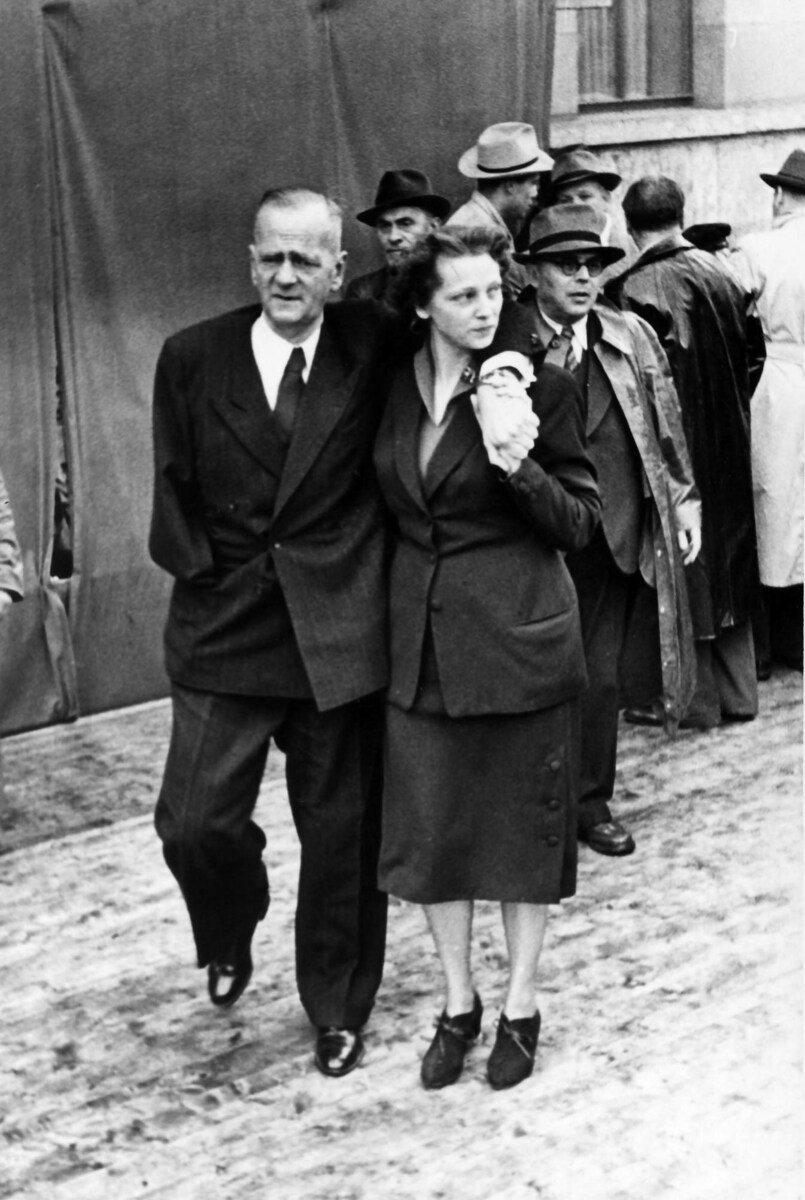Source

Source: Photo showing SPD chairman Kurt Schumacher with his secretary, Annemarie Renger, at an SPD party rally in Dortmund, October 8, 1950. Archiv der sozialen Demokratie.
As the British author Fenner Brockway wrote, Kurt Schumacher embodied the whole tragedy of Germany: he had lost his right arm in the First World War, and twelve years in Nazi concentration camps had left him so physically weakened that one of his legs had to be amputated. His personal sacrifice as well as his uncompromising defense of the Weimar Republic up to his arrest by the Nazis in 1933, made Schumacher an unchallengeable moral authority in the postwar SPD. From Hanover, he rebuilt the party after the war. An ardent anti-Communist, Schumacher successfully opposed a merger between the SPD and the KPD in both the Western sectors of Berlin and the Western zones. And although he was critical of the idea of founding a German state solely on the territory of the Western occupation zones, he helped draw up the Basic Law in the Parliamentary Council in 1948/49 and served as chairman of the SPD Bundestag faction until his death in 1952. This photograph shows Schumacher with his private secretary, Annemarie Renger, at an SPD party rally in Dortmund. After Schumacher's death, Renger would become a member of parliament herself and eventually serve as the first female President of the Bundestag.

Source: Photo showing SPD chairman Kurt Schumacher with his secretary, Annemarie Renger, at an SPD party rally in Dortmund, October 8, 1950. Archiv der sozialen Demokratie.
AdsD/FES, 6/FOTA003688